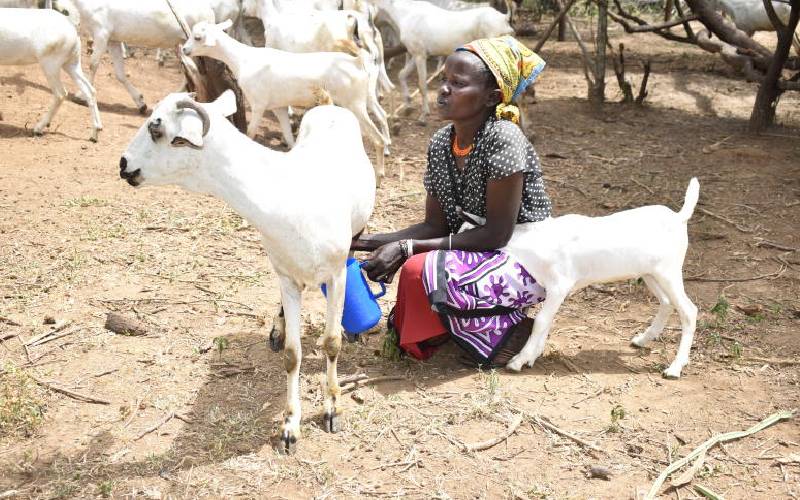×
The Standard e-Paper
Fearless, Trusted News

Esther Chepokorio milking her goats at Masol area, West Pokot county.[Irissheel Shanzu,Standard]
It’s 6am in Masol, West Pokot, and Selina Kipkirkir is already in her cowshed milking cows and goats.